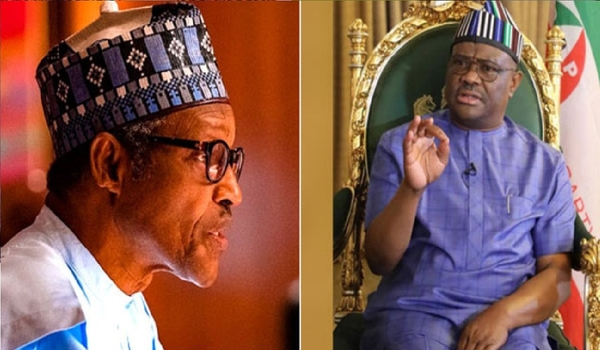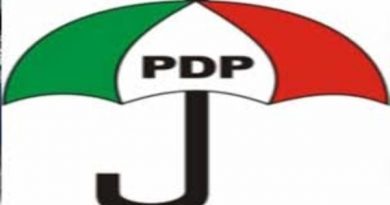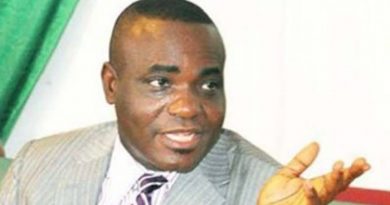Electoral Bill: Anxiety sours over Presidential assent; senior lawyers mute paliamentary overturn; ” no excuse for not signing bill”_Wike
As Sunday, December 19 deadline is the constitutional time limit for President Muhammadu Buhari to sign into law the Electoral Act (Amendment) Bill 2021 lapsed, there is palpable tension over the fate of 2023 elections in Nigeria.
Recall that the National Assembly had sent the electoral bill to the president for his assent on November 19, 2021.
But while there are options that President Buhari may sign the bill and send an amendment to the National Assembly or refuse to sign the bill and ask the National Assembly to consider some of the major issues, some senior lawyers have asked the federal lawmakers to override the president.
Interim Chair, Alliance on Surviving COVID-19 and Beyond (ASCAB), Mr. Femi Falana (SAN); a former President of the Nigerian Bar Association (NBA), Chief Joseph Daudu; human rights lawyer, Mr. Ebun-Olu Adegboruwa; Mr. Dayo Akinlaja (SAN); constitutional lawyer, Chief Mike Ozekhome (SAN); and Mr. John Baiyeshea (SAN), said Saturday the federal lawmakers should veto the president.
Section 58(4) of the 1999 Constitution (as amended) stipulates that where a bill is presented to the president for assent, he shall within 30 days thereof signify that he assents or that he withholds assent.
Under Section 58(5), the constitution states: “Where the president withholds his assents and the bill is again passed by each House by a two-thirds majority, the bill shall become law and the assent of the President shall not be required.”
They faulted as well a position credited to Attorney General of the Federation Abubakar Malami in a leaked letter to the president that making direct primary mandatory for all political parties would create chaos.
Falana said if the president withholds assent again as he did in 2018, the lawmakers should initiate the process of overriding the decision of the president, which according to him, required a two-thirds majority of the Senate and House of Representatives.
Falana, however, explained that the challenge of the governors “is not direct primary mode. The real problem is the electronic transmission of election results because it will stop manipulation.
“The governors now want the president to throw away the baby and bathwater. That is how the president rejected it in 2018 under the guise that it was close to the general election.
“The 2010 Electoral Act provides for direct and indirect primaries specifically under section 87 (1), (2) & (3) of the Act. Under this regime, direct primary mode is optional. In the Electoral Act (Amendment) Bill, 2021, it becomes mandatory. The question of some leaders sitting somewhere to impose candidates will not arise again.”
In Malami’s letter, Falana asked the president to ignore misleading advice from unsolicited quarters, especially potential governorship aspirants, noting that such advice “is based on personal interests and not in the national interest.”
The human rights lawyer also, added that the question of political parties amending their constitutions “to accommodate direct primaries does not arise as they are already part and parcel of the electoral law.”
On his part, Daudu noted that under the subsisting electoral regime, indirect primaries, direct primaries, and consensus had been identified as the options open to the political parties to select and submit candidates for elections.
He explained how the overbearing roles of the governors in the entire electoral process compelled the lawmakers and other stakeholders to introduce the direct primary mode during the amendment of the Electoral Act in 2015.
The senior lawyer argued that over the years, the other stakeholders “have accused the state governors of having a stranglehold on the entire electoral process, especially the process leading to the selection of candidates.
Daudu explained how members of the National Assembly took a collective exception to the stranglehold of the governors on the electoral process considering implications such influence had on their nominations for election.
He said: “This is understandable, as it was getting increasingly clear that even their re-election to their various seats at the National Assembly was shaky without the endorsement of their respective governors.
Meanwhile, Rivers State Governor Nyesom Wike has said while featuring as a guest on private national television, Sunday that President Muhammadu Buhari does not have any excuse for not signing the Electoral Act Amendment Bill.
He argued that contrary to claims that the President is holding back due to the quagmire over direct and indirect primaries as embedded in the bill, the main issue remains the electronic transmission of results.
“The ruling party in their conspiracy is trying to deceive Nigerians that the mere inclusion of the direct primaries in the electoral act amendment bill is the problem why the President does not want to sign or why he has refused to sign.
“The major issue is the transmission, the electronic transmission of results,” Wike asserted.
“The issue is this, Mr. President signed the Petroleum Industry Bill and sent it back for an amendment of the bill.
“If Mr. President means well for this country and as he has promised Nigerians that he wants to conduct free and fair elections, then nothing stops Mr. President from accenting to this amendment and then seek an amendment as regards the direct/indirect mode of conducting the primaries of various political parties,” Wike explained.
He added, “So if anybody tells you that abinitio, APC had wanted to support the electronic transmission of results of the 2023 election, that person must be a joker because I do know that in 2018/2019, why the President did not sign was because of card-reader. Mr. President was told, if you sign that, it would lead to your failure of the election.”
Speaking further on the issue, the Rivers State Governor said based on the constitution, the National Assembly has the right to override President Buhari by two-third of the two chambers to veto the President’s decline.
He, however, expressed dismay over the fact that “the leadership of the National Assembly as we have it today cannot put in the agenda of the two chambers that they will override, veto Mr. Presidents decline.”
According to the governor, the 9th Assembly does not have people who are capable of looking the President in the eye and telling him the truth when he makes a wrong decision.
On this premise, Wike arrived at the conclusion that Nigerians have no choice but to come out and say “enough is enough.” He added that the ruling party cannot continue to take Nigerians for a ride.
“We are talking about what will make Nigeria be respected in the committee of nations as a country that believes in true, transparent democratic processes to elect her leadership.”
Governor Wike in his final summation on the matter stated that by refusing to accent to the Electoral Act Amendment Bill, President Buhari leaves Nigerians to doubt his promise as regards ensuring that the 2023 election will be free and fair.
“There is already a Supreme Court judgment that political parties should be allowed to decide their internal affairs. So, the president believes that imposing a direct primary on political parties would amount to imposing a decision on them on the conduct of their affairs,” the source explained.
Some political parties, including the main opposition party, the Peoples Democratic Party (PDP), had kicked against the direct primary and insisted that parties should be allowed to decide the management of their internal affairs democratically.
The presidency source further explained that Buhari is also concerned with the cost and security implications of direct primary.
In the letter by the Chief of Staff to the President, Prof. Ibrahim Gambari, to the Minister of Finance, Mrs. Zainab Ahmed; INEC Chairman, Prof. Mahmood Yakubu, and the Inspector General of Police, Usman Alkali Baba, dated November 29, 2021, the president had requested their inputs on the cost and security implications of the electoral bill.
INEC had on December 3, 2021, replied to Buhari’s letter directing it to explain some issues contained in the electoral bill transmitted to it by the National Assembly.
According to a source in the presidency, it was INEC’s considered opinion that the bill contains substantial provisions that would lay a solid foundation for important improvements in the electoral process.
INEC, he said, had highlighted landmark proposals in the bill that would radically improve the quality of elections.
These include Electronic transmission of results, early submission of list of nominated candidates, and the power of INEC to review election results declared under duress or in contravention of electoral laws and guidelines.
INEC said in its response that “an accelerated assent to the bill will facilitate the preparation of major elections such as the FCT municipal area council election, Ekiti and Osun states governorship elections, and the 2023 general election.”
It, therefore, urged the president not to hesitate in signing the bill on electoral reforms.
However, there are concerns that if the National Assembly goes on recess on December 21 as proposed and resumes in the third week of January 2022, the lawmakers may not have the time limit to veto the president.
While INEC and the leadership of the National Assembly had advised the president to sign the bill, most state governors and Malami had asked him to reject the bill on the ground that making direct primary mode mandatory would create confusion among political parties.




